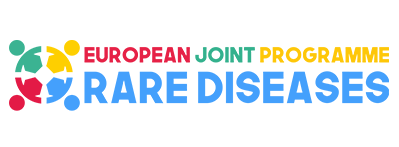EJP on RD

The European Joint Programme on Rare Diseases (EJP RD) demonstrates how the centralised collaboration between different stakeholders advances rare disease (RD) research for the benefit of patients. The bridges built between expanded RD research community and the European Reference Networks allow the advancement of RD Virtual Platform and common approach to standards registries. Integration of patients in all activities and close collaboration with funders aim to lead to the long-expected mind-set changes on patient-centred research.
EURORDIS role in the project
EURORDIS has been involved in the strategic development of the EJP RD proposal and as such is an active member of the Operating Group, which includes the leaders of the different pillars. EURORDIS co-leads a Pillar on capacity building and training for all relevant stakeholders including RD patient representatives. The Pillar gathers 45 partners across 5 work packages. EURORDIS has coordinated efforts to pull together a coherent programme of training courses and support activities that are delivered mostly on a pluriannual basis.

